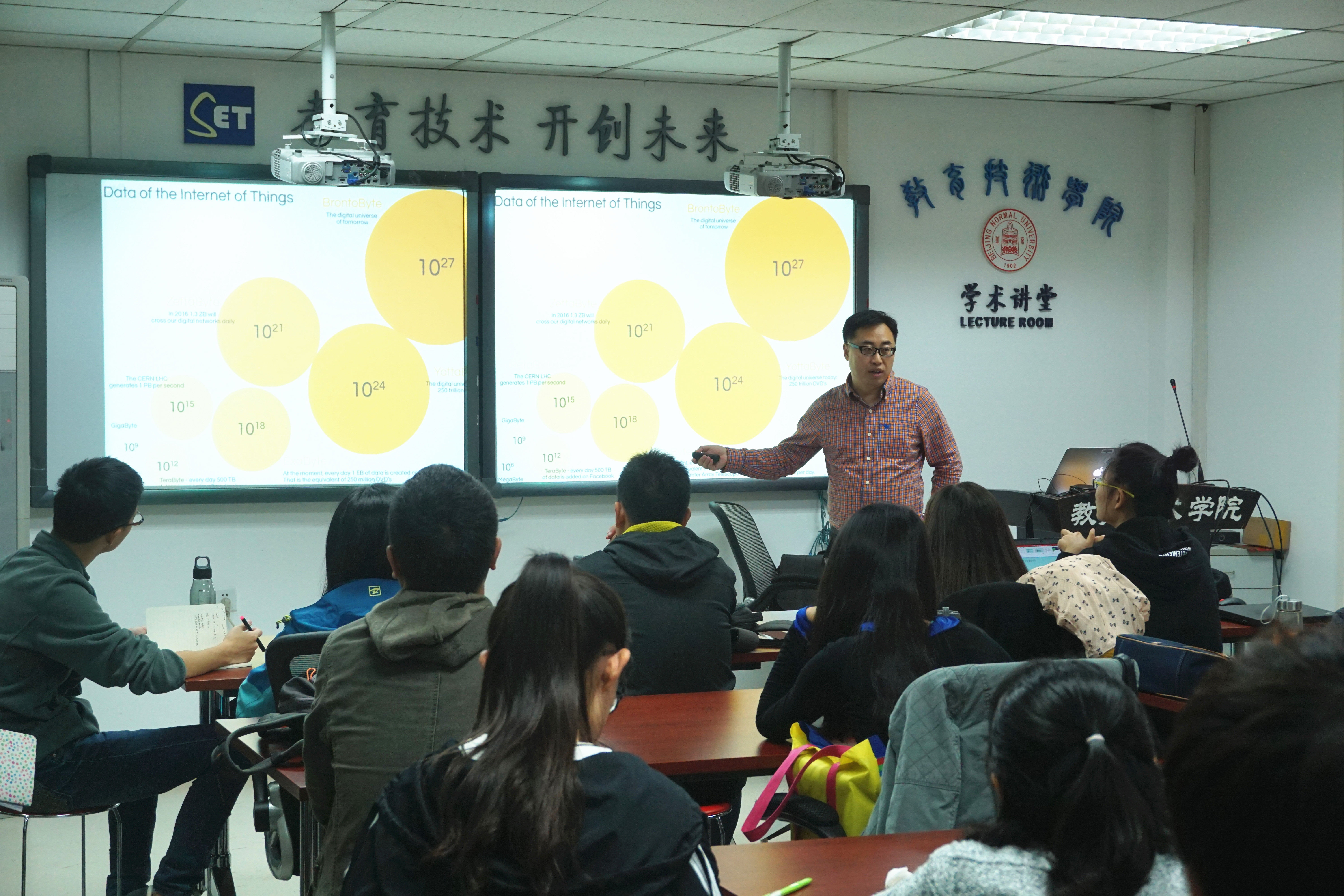
Dr. Jiangang Hao from Educational Testing Service (ETS) delivered a lecture on Computational Psychometrics from 2:00 to 3:30 pm on October 20, 2016 in the Room 208, Yanbo Building, Beijing Normal University. The lecture was titled: New frontiers of educational measurement: 21st century skills, game/simulation-based assessments and big data analytics. It is intended to share an overview of the multiple research frontiers in educational measurement, including the current framework of 21st century skills, game/simulation-based assessment, educational data mining & analytics, NLP (Neuro-Linguistic Programming)-based automated scoring & artificial intelligence.
The lecture attracted about 70 attendees, including undergraduate students, graduate students, and professors from Beijing Normal University. In the Q&A session after lecture, 7 attendees asked questions about big data, virtual performance-based assessment for teacher, ETS, etc. Dr. Hao and audience had an in-depth interaction and communication.
Dr. Hao is a senior research scientist at the Computational Psychometrics Research Center at Educational Testing Service. Beijing Advanced Innovation Center for Future Education (AICFE) invited Dr. Hao for a four-day academic exchange, because his current research centers on collaborative problem solving, game and simulation-based assessment, educational data mining & analytics, and automated scoring. These topics are closely related to the research programs that AICFE are conducting now.


Further reading:
1) What is computational Psychometrics?
Psychometrics is a field of study concerned with the theory and technique of psychological measurement. Generally, it refers to the field in psychology and education that is devoted to testing, measurement, assessment, and related activities. One part of the field is concerned with the objective measurement of skills and knowledge, abilities, attitudes, personality traits, and educational achievement. Another part of the field is concerned with statistical research bearing on measurement theory.
The mainstream in psychometrics is moving towards ever greater use of computational and mathematical modeling techniques. Such techniques are critical in the emerging fields of affective and wearable computing. Efforts have started with Internet-based teaching and learning, but recently systems make an increasing use of computational psychometrics, including ambient intelligence, pervasive computing, smart phones, and sensor systems.
2) Peer-reviewed Journal published by Dr. Jiangang Hao in recent 10 years
